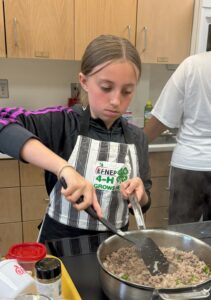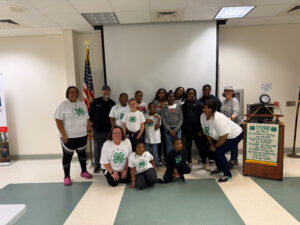EFNEP Empowering Families to Reduce Sodium Intake
go.ncsu.edu/readext?1068264
en Español / em Português
El inglés es el idioma de control de esta página. En la medida en que haya algún conflicto entre la traducción al inglés y la traducción, el inglés prevalece.
Al hacer clic en el enlace de traducción se activa un servicio de traducción gratuito para convertir la página al español. Al igual que con cualquier traducción por Internet, la conversión no es sensible al contexto y puede que no traduzca el texto en su significado original. NC State Extension no garantiza la exactitud del texto traducido. Por favor, tenga en cuenta que algunas aplicaciones y/o servicios pueden no funcionar como se espera cuando se traducen.
Português
Inglês é o idioma de controle desta página. Na medida que haja algum conflito entre o texto original em Inglês e a tradução, o Inglês prevalece.
Ao clicar no link de tradução, um serviço gratuito de tradução será ativado para converter a página para o Português. Como em qualquer tradução pela internet, a conversão não é sensivel ao contexto e pode não ocorrer a tradução para o significado orginal. O serviço de Extensão da Carolina do Norte (NC State Extension) não garante a exatidão do texto traduzido. Por favor, observe que algumas funções ou serviços podem não funcionar como esperado após a tradução.
English
English is the controlling language of this page. To the extent there is any conflict between the English text and the translation, English controls.
Clicking on the translation link activates a free translation service to convert the page to Spanish. As with any Internet translation, the conversion is not context-sensitive and may not translate the text to its original meaning. NC State Extension does not guarantee the accuracy of the translated text. Please note that some applications and/or services may not function as expected when translated.
Collapse ▲In alignment with the 2020-2025 Dietary Guidelines for Americans, which recommend limiting sodium intake to less than 2,300 mg per day for individuals aged 14 and older, the Expanded Food and Nutrition Education Program (EFNEP) promotes a simple, flavorful solution: homemade taco seasoning! This initiative helps families reduce their sodium consumption and lower their risk of chronic diseases such as high blood pressure and heart disease.
The Sodium Challenge
Most of the sodium in the American diet comes from processed foods, restaurant meals, and pre-packaged condiments and seasonings. Reducing sodium intake can significantly improve heart health. Homemade seasonings—like the one featured on FoodHero.org—are a simple way to cut back on sodium while still enjoying great flavor.
EFNEP’s Educational Approach
EFNEP offers evidence-based, hands-on nutrition education to limited-resource families and youth across North Carolina. Through a series of practical lessons, participants learn to reduce the three S’s: Saturated fat, added Sugar, and Sodium—key contributors to chronic disease.
Youth and adult participants gain real-world skills such as meal planning, cooking, grocery budgeting, and reading food labels. Research from the Journal of Nutrition Education and Behavior shows that EFNEP graduates make measurable improvements in diet quality and reduce their intake of sodium.
For middle and high school students, EFNEP provides the Fuel for Life curriculum—an interactive, age-appropriate program that teaches teens about balanced nutrition, physical activity, goal-setting, and informed decision-making.
Youth in Action: Learn by Doing

EFNEP emphasizes the 4-H “learn by doing” philosophy. Recently in April, Brunswick County’s 4-H Youth in Action club participated in a hands-on lesson from NC EFNEP’s Fuel for Life curriculum. Youth learned to make the EFNEP recipe Homemade Taco Seasoning and used it to prepare the NC EFNEP Fuel for Life – Southwest Bowl recipe.
They enjoyed measuring ingredients, mixing spices, cooking the dish, and sharing their healthy creation. This interactive activity not only introduced nutrition education concepts but also strengthened life skills like teamwork, kitchen safety, and healthy decision-making.
Get Involved: Eat Smart, Move More

EFNEP’s Families Eating Smart and Moving More is a five-week course that empowers families with the tools to eat better, move more, and improve overall wellness. Classes are fun, interactive, and led by Angie Lawrence, EFNEP Nutrition Educator for Brunswick County.
Participants receive access to resources like low-cost recipes, meal planning strategies, and practical tips to support a healthy lifestyle for the whole family; including recipes to make condiments and seasonings that help reduce the three S’s:
- Saturated fat
- Sugar
- Sodium
For more information, please contact Angie Lawrence – EFNEP Nutrition Educator, N.C. Cooperative Extension – Brunswick County (p) 910-253-2610 (e) angie_lawrence@ncsu.edu



